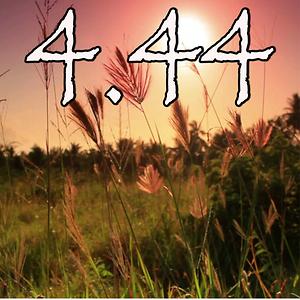

"All of that genuine word-of-mouth PR, you don't need anything else, man," she says. She describes the entire experience as "affirming and beautiful," a bridge to an entire new audience of music fans that otherwise wouldn't know who she was. "So many people are surprised. It's like, 1) you're white, 2), you're British and 3) you're alive. Like, this isn't a clip from the '70s, and I love that." "Views on YouTube have absolutely sky-rocketed, and I spent literally four hours yesterday and today just responding to tweets," Williams says. They released Late Nights & Heartbreak in 2016 but have never experienced this level of hype. The response for Williams and the Affirmations has been overwhelming, possibly even life-changing.

… I describe it as flow-etry, it's so free, it's such beautifully nonlinear prose and these gaps in between that are almost completely unadulterated us, which is absolutely amazing." "He has literally given it so much space, it sets the scene for what he's going to say, then allows people to reflect on what he's already said. "It's this incredible sort of respect, actually from him, from No I.D., of our original song," says Williams. It's used again for the hook, with Williams singing "I'm never gonna treat you like I should" in order to break up these extremely personal verses from Jay. Almost a full minute of Williams and her band plays before Jay-Z's voice even comes in. For Williams, the most surprising thing was just how much of the song was used. So many people are surprised, it's like, one, you're white, two, you're British and three, you're alive.' - Hannah Williams "I put the sample from the singer Hannah Williams - it starts off with, 'I find it so hard/ When I know in my heart/ I'm letting you down every day.' I remember him hearing it and looking at me like, 'O.K., fine.'" "I created that beat to box him into telling that story," No I.D. With the song on his mind, the rapper woke up at 4:44 in the morning and wrote his response. told the New York Times that he used Williams' voice in order to inspire Jay-Z to open up. On it, he addresses betraying his wife, casting shame on his family and dreading the day he has to explain it all to his children. Her voice is what you hear at the beginning of the title track, "4:44," a raw, emotional confession from the rapper like we've never heard before. Williams knew it was going to be a big sample, but she had to wait, just like the rest of us, to hear the final product. "And it felt like that until Friday, when I finally got to hear the song." "It's so weird, it was such a tiny, finite conversation, it feels like it never happened," she says. "So I did that, we had a really nice chat, decided what we were going to do and he was like, 'my people will call your people and we will decide what to do.' Genuinely that was the last we spoke." "I was like, of course, I will do whatever you want, oh divine being," she says. Jay-Z needed the recordings from the original sessions and asked her to do a few different interpolations with the chorus.

"He told me, 'thank you, the song is great, and I've written the most personal song I've ever written around your song sample and I need to ask you a couple favours.'" Jay loved her song, which his producer, No I.D., had shown to him in order to inspire him to write a response track to Beyoncé's Lemonade, in which Beyoncé confronts his infidelities. Z?' And he was like, 'oh thank you so much for calling, I know how busy you are,' and it's just like, oh my God, how am I getting the I-know-you're-busy-thanks-for-calling from Jay f-king Z?" "I didn't even know what to call him," she says. So she called the number, just to see for sure. "At that point, it was like maybe this is a really elaborate windup and someone is playing this super uber prank on me," she says over the phone from her home in Winchester.


 0 kommentar(er)
0 kommentar(er)
